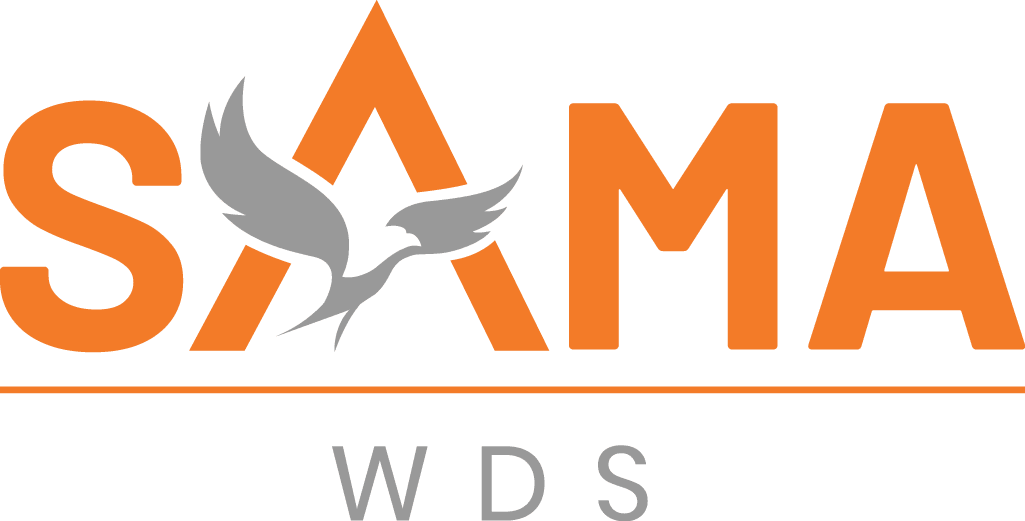
AI + Workday: The Secret Weapon Transforming HR into a Strategic Powerhouse
Human Resources has evolved more in the last five years than in the previous fifty. With hybrid work, globalized teams, and growing compliance complexity, HR departments are under pressure to deliver faster, smarter, and more personalized employee experiences.
Enter Artificial Intelligence (AI) — the catalyst driving this transformation. When paired with a robust, unified system like Workday, AI empowers HR leaders to move from manual administration to intelligent orchestration.
This convergence — AI + Workday — is not about replacing humans. It’s about augmenting them with real-time insights, predictive analytics, and automation that enhance decision-making and elevate the entire workforce experience.
This article breaks down how AI is revolutionizing HR through Workday, covering everything from architecture and governance to real-world results, future trends, and ROI metrics.
1. The Urgent Need for AI in Modern HR
1.1 HR’s Evolving Mandate
Traditional HR was about compliance, payroll, and policy enforcement. But as organizations scale globally, HR has become a strategic driver of culture, retention, and innovation. Yet, many HR professionals still spend 60–70% of their time on repetitive administrative work — tasks AI can now automate.
A recent study by McKinsey found that AI could automate up to 56% of HR tasks, including data management, scheduling, and candidate screening. (McKinsey Global Institute, 2024)
1.2 Data Overload in HR Systems
Modern HR systems handle vast volumes of data — employee demographics, payroll, learning history, performance metrics, engagement surveys, and more.
The challenge isn’t collecting data; it’s deriving value from it. AI embedded in Workday bridges this gap by uncovering patterns and delivering actionable insights — such as predicting attrition risk or recommending the right learning modules.
1.3 The Business Case
According to Deloitte’s 2025 Human Capital Trends report:
“Organizations that embed AI in their HR processes experience up to 30% higher productivity and 25% faster decision-making.”
In short, AI turns HR from reactive to proactive — a necessity in a volatile labor market.
Ready to Transform HR with AI-Powered Workday Solutions?
Sama helps organizations harness the power of AI within Workday to automate HR processes, enhance decision-making, and elevate workforce strategies—turning HR into a true strategic powerhouse.

2. Workday’s Role in the AI Transformation
Workday has positioned itself as the global leader in AI-driven HR. Its cloud platform unifies finance, HR, planning, and analytics — giving AI a single source of truth for decision-making.
2.1 Native AI and Machine Learning Framework
Workday’s AI Gateway allows developers and partners to embed custom AI models directly into the platform.
It also uses embedded ML across its suite for tasks like:
- Resume parsing and skill inference
- Personalized learning recommendations
- Predictive workforce analytics
- Expense and payroll anomaly detection
These models are built using Workday Prism Analytics and People Experience APIs, ensuring governance and transparency.
2.2 AI Agents and Workday Assistant
The Workday AI Assistant, powered by Workday Illuminate™, helps employees and managers complete complex HR and finance actions conversationally — like booking time off, reviewing budgets, or requesting promotions.
Example query:
“Show me high-performing employees at risk of leaving in the next six months.”
The assistant pulls real-time insights and triggers workflows seamlessly, improving decision agility.
2.3 Continuous Learning Models
Workday’s AI doesn’t just process static data. Its models evolve by continuously learning from anonymized global patterns across 65+ million workers — while ensuring customer data privacy through federated learning.
3. Core AI-Powered HR Capabilities
3.1 Talent Acquisition & Recruitment Automation
Recruitment is one of the most AI-disrupted HR domains.
Workday Recruiting, enhanced with AI, enables:
- Smart candidate ranking using natural language processing (NLP)
- Bias-aware matching algorithms
- Automated interview scheduling and reminders
- Job ad optimization for gender-neutral, inclusive language
A Workday survey found that 77% of HR leaders plan to increase AI use in recruitment within a year.
AI has reduced time-to-hire by 40% in early adopters such as Dell and Accenture, according to SHRM (2025).
3.2 Performance Management and Continuous Feedback
AI replaces static annual reviews with dynamic performance management:
- Auto-generated goal recommendations based on historical data
- Continuous feedback loops through Workday Assistant
- Sentiment analysis on peer reviews and 360° feedback
- Predictive alerts for potential burnout or disengagement
AI ensures managers don’t just evaluate performance — they elevate it.
3.3 Personalized Learning & Development
AI-powered Workday Learning curates content automatically:
- Suggests courses based on employee aspirations and skills gaps
- Delivers micro-learning when needed (“learning in the flow of work”)
- Analyzes completion data to predict future skill demands
Gartner predicts that by 2026, 70% of L&D leaders will use AI-based content personalization in enterprise training platforms.
3.4 Workforce Planning & Analytics
Workday’s People Analytics applies predictive models to forecast:
- Attrition probabilities by role or geography
- Cost optimization opportunities
- Talent surplus or shortage scenarios
- Diversity & inclusion metrics
AI-driven insights help CHROs align workforce strategy with financial forecasts — something traditional HR tools can’t deliver.
3.5 Employee Engagement & Sentiment
With NLP models, AI can process anonymous surveys, Slack messages, or Workday feedback forms to detect morale drops or engagement risks in real time.
Workday found that companies using sentiment analytics experienced 24% lower attrition than those without it.
3.6 Compliance & Risk Management
AI automates complex HR compliance workflows by:
- Monitoring labor law changes across jurisdictions
- Flagging non-compliant payroll or benefits data
- Generating audit-ready reports
This reduces compliance risk and human error — a growing priority in multi-country operations.
Ready to Transform HR with AI-Powered Workday Solutions?
Sama helps organizations harness the power of AI within Workday to automate HR processes, enhance decision-making, and elevate workforce strategies—turning HR into a true strategic powerhouse.

4. Behind the Scenes: The Architecture That Makes It Work
AI’s magic is only as strong as its architecture. Here’s what makes Workday’s AI ecosystem enterprise-ready.
4.1 Unified Data Core
Workday’s architecture consolidates all enterprise data (HR, finance, talent, operations) in a single data model, eliminating silos and enabling end-to-end analytics.
4.2 Federated Learning
Unlike traditional AI that pools raw data, Workday’s federated learning model keeps customer data within their tenant. Models learn from patterns without transferring sensitive information — ensuring GDPR and SOC 2 compliance.
4.3 Explainable AI (XAI)
Workday emphasizes model transparency by using explainable AI frameworks — showing how a recommendation (e.g., promotion readiness) was derived.
This transparency is essential to overcoming the AI “black box” problem.
4.4 Extensibility via Workday AI Gateway
The AI Gateway enables organizations to connect external AI services or proprietary models (e.g., custom NLP or risk models) without breaking Workday’s governance layer.
This modularity means enterprises can build hybrid architectures integrating tools like OpenAI, AWS Bedrock, or Google Vertex AI within Workday’s environment.
5. Trust, Transparency & Ethical Governance
5.1 The AI Trust Gap
A 2024 Workday global survey revealed:
- Only 62% of leaders trust AI in the workplace.
- Just 52% of employees feel comfortable using it.
Trust issues stem from poor explainability and lack of governance frameworks.
5.2 Building Responsible AI Governance
To bridge the gap, organizations should:
- Establish an AI Ethics Committee including HR, Legal, and IT.
- Implement bias audits using fairness metrics (e.g., demographic parity).
- Create transparency dashboards that show data lineage and model accuracy.
- Provide opt-out clauses for sensitive AI decisions.
- Train HR teams in AI literacy and bias recognition.
Workday supports ethical AI through built-in fairness monitoring and model interpretability tools.
Ready to Transform HR with AI-Powered Workday Solutions?
Sama helps organizations harness the power of AI within Workday to automate HR processes, enhance decision-making, and elevate workforce strategies—turning HR into a true strategic powerhouse.

6. Measuring Impact: KPIs, ROI & Real-World Results
6.1 Key Metrics to Track
Organizations adopting AI in Workday should measure:
- Process Efficiency → Time saved on manual HR tasks
- Talent Metrics → Time-to-hire, quality of hire, internal mobility
- Engagement → eNPS and satisfaction trends
- Accuracy → AI recommendation acceptance rate
- Cost Reduction → Automation-driven savings
- Adoption → % of employees actively using AI tools
6.2 ROI Evidence
IBM reports that AI-driven HR systems deliver an average ROI of 300–600% within 18 months of deployment.
Workday’s own clients report up to 40% reduction in administrative overhead and 25% faster decision-making cycles after embedding AI in HR operations.
6.3 Continuous Improvement
HR leaders must create feedback loops — where users can rate, correct, or override AI suggestions — improving model accuracy over time.
7. Case Studies & Industry Adoption Trends
7.1 Workday’s Internal AI Success
Workday achieved 79% internal AI adoption by mid-2025 (up from 37% baseline). Employees use AI agents daily to automate expenses, request feedback, and manage projects — saving thousands of work hours annually.
7.2 CloudApper Integration
CloudApper’s AI TimeClock integrated with Workday reduced manual time tracking errors by 43% and improved payroll accuracy by 27%.
7.3 Broader Industry Data
- 73% of executives feel pressure to accelerate AI adoption (Workday AI IQ Report 2024).
- 39% of global companies use AI in HR or recruiting (Workday Research, 2025).
Companies using AI in HR are 2.3x more likely to outperform peers in employee engagement (Bersin by Deloitte, 2024).
Ready to Transform HR with AI-Powered Workday Solutions?
Sama helps organizations harness the power of AI within Workday to automate HR processes, enhance decision-making, and elevate workforce strategies—turning HR into a true strategic powerhouse.

8. The Future of AI + HR: From Predictive to Prescriptive
8.1 Predictive Today
Today, AI forecasts outcomes — who might resign, which teams underperform, or which candidates may succeed.
8.2 Prescriptive Tomorrow
The next step is prescriptive HR, where AI doesn’t just predict — it advises and acts.
Imagine:
- AI autonomously offering retention bonuses to at-risk employees
- Dynamic reskilling paths generated based on company strategy
- Personalized, AI-crafted career journeys
8.3 Generative AI in HR
Generative AI will write performance summaries, create training plans, and generate custom job descriptions — saving HR hours weekly.
Workday’s Generative AI Layer (announced 2024) already automates content drafting for HR teams using secure, tenant-specific data.
9. Overcoming Barriers to AI Adoption in HR
9.1 Common Barriers
-
- Fear of job loss among HR staff
- Data silos and integration complexity
- Lack of AI literacy
- Compliance concerns
- Cultural resistance to automation
9.2 How to Overcome Them
- Start small: Pilot AI in one process (like recruiting) before scaling.
- Communicate early: Explain benefits, limitations, and safeguards.
- Upskill teams: Train HR professionals to interpret AI outputs.
- Collaborate with IT: Ensure data integrity and system security.
- Show quick wins: Highlight time savings or accuracy improvements to build momentum.
Gartner reports that enterprises that manage change well are 3x more likely to see positive ROI from AI investments.
Ready to Transform HR with AI-Powered Workday Solutions?
Sama helps organizations harness the power of AI within Workday to automate HR processes, enhance decision-making, and elevate workforce strategies—turning HR into a true strategic powerhouse.

10. The Human Advantage in the Age of AI
AI may automate tasks, but it cannot replace empathy, ethics, or emotional intelligence — the true hallmarks of HR.
The goal isn’t to eliminate human judgment but to enhance it. Workday’s AI strategy reflects this — positioning humans as decision-makers, not bystanders.
When implemented ethically and intelligently, AI liberates HR professionals from repetitive work so they can focus on what truly matters: developing people, nurturing culture, and driving business success.
Conclusion: The Next Era of Workday + AI
AI in HR isn’t a trend — it’s the new baseline for competitiveness.
With Workday’s AI-driven capabilities — from predictive analytics to conversational agents — HR departments can finally align daily operations with strategic vision.
The question isn’t if you’ll adopt AI in HR, but how soon.
Ready to Transform HR with AI-Powered Workday Solutions?
Sama helps organizations harness the power of AI within Workday to automate HR processes, enhance decision-making, and elevate workforce strategies—turning HR into a true strategic powerhouse.

